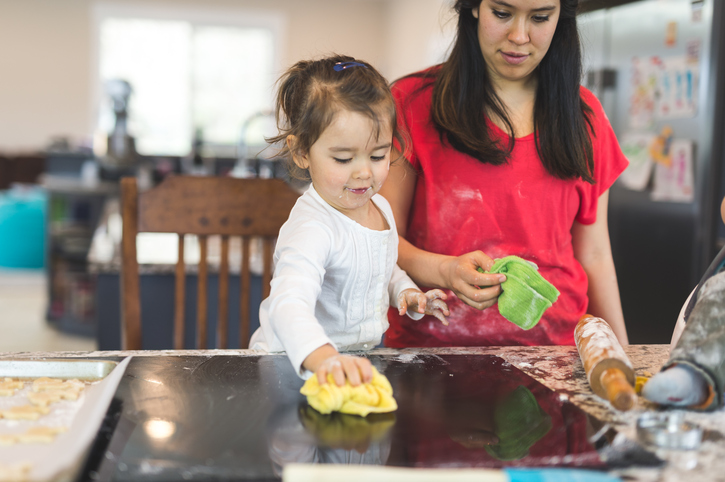Parenting Through Presence, Not Pressure
Monday, Apr 21, 2025

In a culture full of parenting tips, sticker charts, and competing philosophies, some of the most meaningful shifts don’t come from doing more—but from doing less, with intention. At Trekwise, we believe in stepping back, tuning in, and helping parents connect with their kids not by fixing, but by understanding. The work we do is quiet, subtle—and powerful.
Let’s talk about Mira.
Mira, an energetic 10-year-old, had been refusing to go to after-school activities. Every afternoon, her parents faced the same routine: tears, arguments, door slamming. Her mom, Sarah, tried everything—planning incentives, giving her extra time, even walking her in personally. Nothing helped.
Then Sarah tried something different.
Instead of coaxing or convincing, she calmly said: “It’s your choice. I’ll be in the kitchen if you need me.” No pressure. No lecture. And then she let it go.
At first, nothing changed. But within a few days, Mira began to show up at the door—backpack ready, shoes on. Not because anyone pushed her, but because she felt in control. The resistance eased when the pressure disappeared.
That’s one of the core principles we teach at Trekwise: Sometimes, kids need space more than solutions. Autonomy fosters trust. Our coaches work with parents to pause, observe, and wait—not out of neglect, but out of respect. We don’t rush in with answers. We model patience, and kids rise to meet it.
There’s another part of Sarah’s story that surprised her.
One week, the entire household lost power during a winter storm. No screens. No routines. The kids, left to their own creativity, reorganized the living room into a game zone, made up bedtime stories, and helped each other brush teeth by flashlight. Sarah watched in awe as a sense of independence emerged—not in spite of the disruption, but because of it.
It’s a second Trekwise principle: Growth doesn’t always happen through structure. Sometimes, it comes through challenge. The moments that feel inconvenient or messy are often the ones that shape resilience. We help families see these interruptions not as breakdowns—but as opportunities.
Later that month, Sarah found a notebook Mira had left out. Its pages were filled with questions—some silly, some serious. One page was more intense: sketches of a friend crossed out, notes of frustration, circles around the words “Why does she always win?”
Sarah was startled. Mira had never said anything like this aloud.
But instead of reacting with alarm, Sarah asked herself: What’s underneath this?
What she learned was that Mira was struggling with a sense of unfairness and feeling overlooked by a friend who often dominated group activities. The notebook wasn’t a sign of something wrong—it was a window into how Mira was processing a complex emotion.
This brings us to a third key Trekwise idea: Let kids feel hard things. Jealousy, anger, sadness—they’re not problems to eliminate. They’re part of growing up. At Trekwise, we help parents name emotions, not shame them. When kids feel safe expressing the messy stuff, they also learn how to navigate it.
And maybe most telling: Mira had left the notebook out, clearly visible. Not hidden. Almost as if she wanted someone to find it.
We believe kids are always communicating. Behavior is a language—and decoding it starts with curiosity, not control.
Since then, Mira still has tough days. She still complains about group games, still gets frustrated. But she also laughs more. Sleeps better. Gets ready for after-school without a fight. The difference isn’t perfection—it’s progress. And that’s exactly what growth looks like.
So what does the world need to learn from Sarah and Mira?
That backing off is not the same as giving up.
That emotional expression, even when uncomfortable, is a strength.
That real growth often starts when adults stop trying to manage it.
At Trekwise, we don’t fix kids. We support families. We listen more than we talk. And we help build relationships rooted in connection, not correction.
Because at the end of the day, parenting isn’t about having all the answers.
It’s about staying calm, staying open, and staying in the moment.
Let’s reimagine behavioral health—not as a clinic you go to, but as something that starts in the home, with love, patience, and presence.
Inspired by real themes from Trekwise coaching. All names and details have been changed.
Share this post on social media: